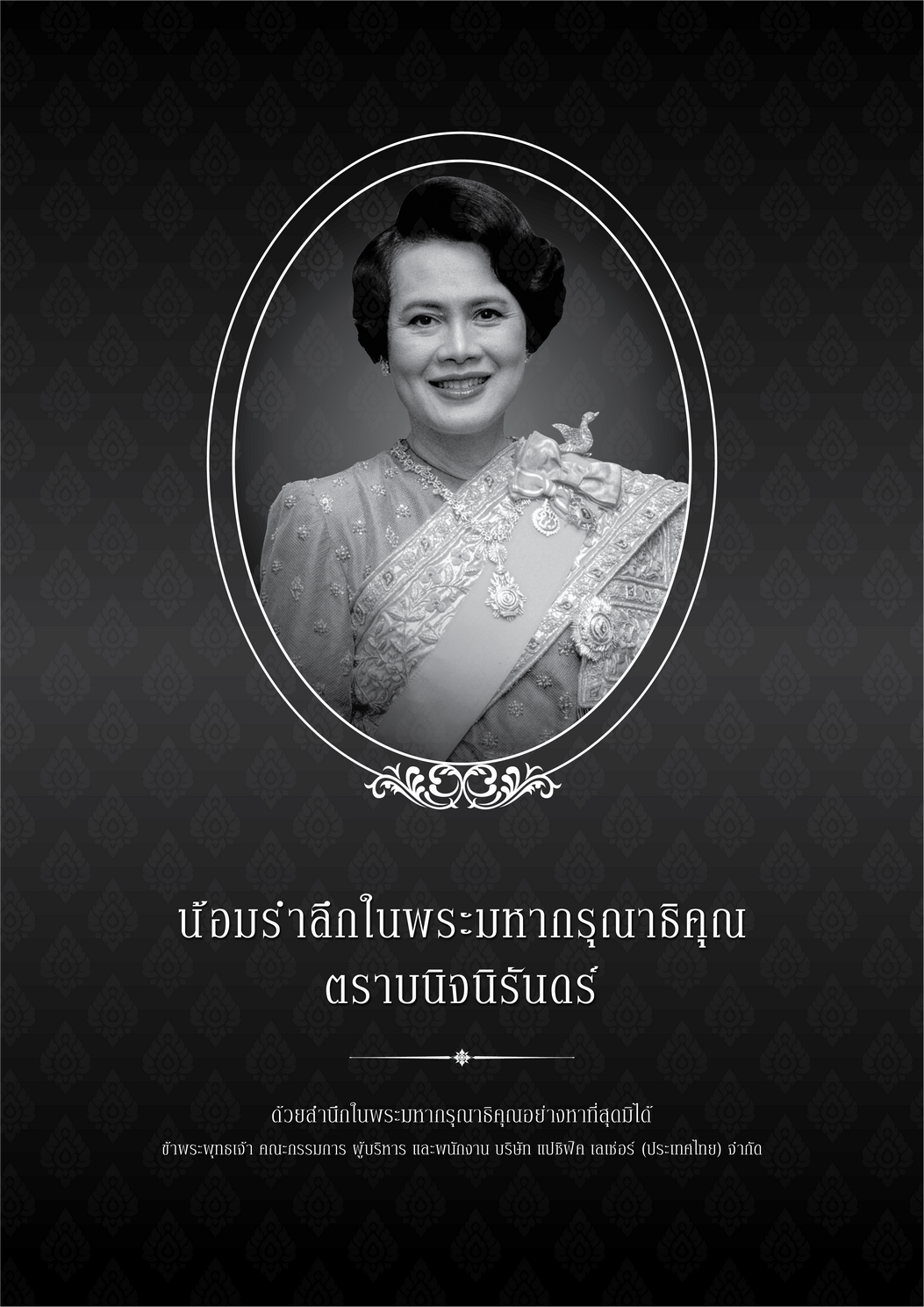
Lotus Threads: The Dyeing Tradition of Non Kok Village
Envisioned amidst the abundance of lotus ponds that grace the province, particularly the enchanting Water Lily (Nymphaea Lotus) flourishing in the myriad marshes, the concept of utilizing lotus flowers as a natural dye for fabric blossomed. What began as a humble notion soon evolved into a signature local craft, weaving its way into the fabric of the community's identity and capturing the imagination of artisans and admirers alike.
Today, the art of lotus dyeing stands as a testament to the ingenuity and resourcefulness of Non Kok Village's residents. Complementing the timeless traditions of rice farming and agriculture, this craft has emerged as a significant supplementary occupation, providing both economic sustenance and artistic fulfillment to the villagers. As vibrant hues emerge from the delicate petals of the lotus, so too does a sense of pride and prosperity within the community.
Today, the art of lotus dyeing stands as a testament to the ingenuity and resourcefulness of Non Kok Village's residents. Complementing the timeless traditions of rice farming and agriculture, this craft has emerged as a significant supplementary occupation, providing both economic sustenance and artistic fulfillment to the villagers. As vibrant hues emerge from the delicate petals of the lotus, so too does a sense of pride and prosperity within the community.
Step into the world of Non Kok Village, where every thread tells a story of harmony between nature and craftsmanship. Experience the allure of lotus dyed fabric, a tangible expression of the village's rich cultural heritage and unwavering spirit. In this tranquil enclave, the beauty of tradition flourishes anew with each carefully woven masterpiece, inviting you to immerse yourself in the timeless charm of rural Thailand.
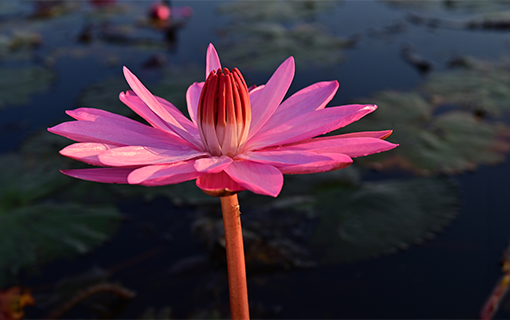
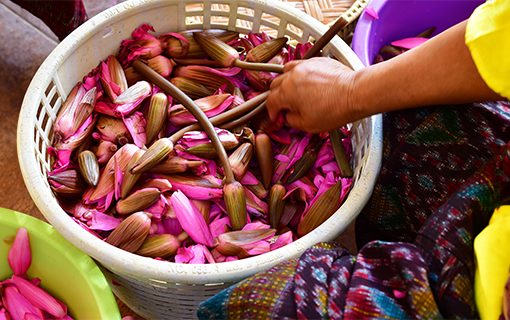

In the annals of Non Kok's history, the art of fabric weaving and dyeing has long been etched into the village's tapestry of traditions. For generations, the skilled hands of its residents meticulously crafted textiles using natural dyes derived from the bountiful gifts of the surrounding forests, predominantly harnessing the hues of tree barks to imbue their creations with earthly tones.
However, the year 2014 marked a pivotal moment in the evolution of Non Kok's textile legacy. Mr. Aphichat Pholbuakai, the esteemed village headman, spearheaded the establishment of the "Bann Non Kok Ancient Weaving Group," breathing new life into age-old practices by infusing them with the delicate allure of lotus flowers.
Embracing the captivating beauty of the "Red Lotus" and the enchanting "Water Lily (Nymphaea lotus)," the artisans of Non Kok embarked on a journey of discovery, unlocking the untapped potential of these aquatic blossoms within their dyeing process. Through meticulous experimentation, they uncovered the remarkable transformation that occurred when lotus stamens were gently boiled, yielding a mesmerizing grey-silver hue, while the petals unfurled into a rich brown-golden tapestry.
But the innovation didn't end there. Drawing inspiration from the village's verdant surroundings, they explored the art of cold dyeing, blending lotus petals with the tart essence of lemon juice to unveil a delicate spectrum of pink-purple shades, further expanding the palette of possibilities for their craft.
In weaving together the ancient wisdom of their forebears with the pioneering spirit of their contemporary artisans, Non Kok's "Bann Non Kok Ancient Weaving Group" has not only preserved tradition but also breathed new vitality into the fabric of their community. Through the transformative power of lotus, they have woven a narrative of resilience, creativity, and cultural revival, ensuring that the legacy of Non Kok's textile heritage continues to flourish for generations to come.
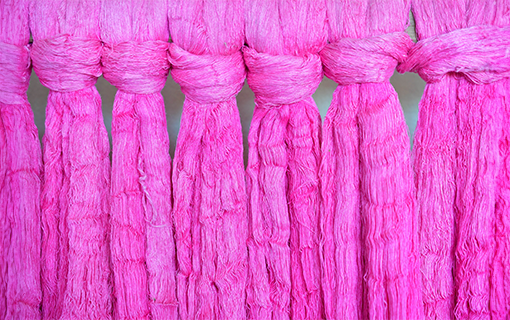

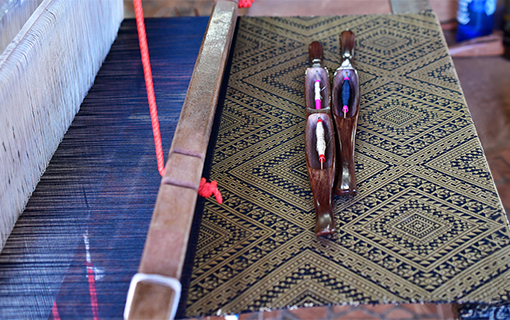
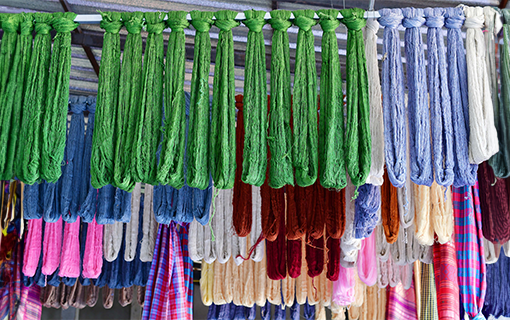
The fabrics used for weaving are silk and cotton, woven using traditional looms called "ki". The weaving process is intricate and requires specialized skills passed down through generations. The patterns woven include both traditional Isaan patterns and new designs created to modernize the fabrics.
Currently, the fabric weaving of the people of Non Kok has evolved into the "Non Kok Ancient Weaving Learning Center", offering opportunities for the general public to visit and learn. Whether for tourism or educational purposes, the center is open daily from morning till evening. It provides an authentic experience in a rural setting, situated amidst the rice fields.
This is one of Thailand's cultural heritages, passed down through generations and continuously developed. It has gained recognition both domestically and internationally, standing as a proud artisanal craft of the Thai people.
Editor in Chief : Nampetch Siramanon
Editor: Pacific Leisure (Thailand)
Content Creator : Mr. Saroj Na Ayutthaya
Navigate
Terms & Privacy
Pacific Leisure (Thailand) Limited
No. 888/154, Mahatun Plaza Bldg., 15th Floor,
Ploenchit Road, Lumpini, Pathum Wan,
Bangkok 10330, Thailand
Phone : +66 22 542 966
Mobile : +66 63 224 1384, +66 81 138 2983
Email : info@pacificleisureth.com
Website : https://www.PacificLeisureTH.com
(TAT) Licensed No: 11/00161

